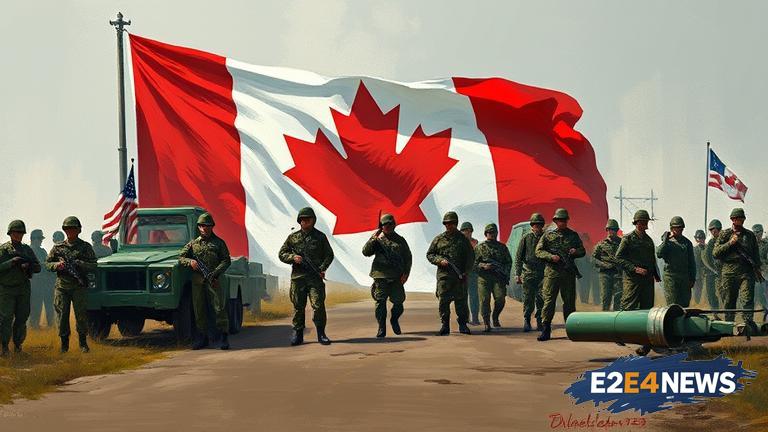The Canadian military has been plagued by funding issues, with numerous projects experiencing significant delays and cost overruns. The government’s procurement process has been criticized for being overly complex and bureaucratic, leading to wasted resources and a lack of accountability. The F-35 fighter jet procurement program, for example, has been beset by problems, including a significant increase in costs and a failure to meet initial delivery timelines. Similarly, the navy’s shipbuilding program has been delayed, with some vessels experiencing significant cost overruns and technical issues. The Canadian government has also been criticized for its handling of military equipment maintenance, with some equipment being left in a state of disrepair due to a lack of funding. The consequences of these funding issues are far-reaching, with the military’s ability to effectively defend the country being compromised. The government’s failure to provide adequate funding has also led to a shortage of personnel, with many military members leaving the service due to a lack of resources and support. Furthermore, the funding issues have had a significant impact on the military’s ability to participate in international missions, with Canada’s contribution to NATO and other alliances being limited by a lack of resources. The government has been accused of prioritizing politics over the needs of the military, with funding decisions being made based on political expediency rather than strategic necessity. The opposition has called for greater transparency and accountability in the government’s handling of military funding, including the implementation of a more streamlined procurement process and greater oversight of military spending. The government has responded by announcing plans to increase military funding, but critics argue that this is too little, too late. The military funding issue has become a major point of contention in Canadian politics, with the government facing criticism from both the opposition and the military itself. The issue has also sparked a wider debate about the role of the military in Canadian society and the need for greater investment in the country’s defense capabilities. Despite the challenges, there are signs that the government is beginning to take the issue seriously, with the establishment of a new procurement agency and the appointment of a new minister of defense. However, much work remains to be done to address the systemic issues that have led to the current funding crisis. The Canadian public is calling for greater accountability and transparency in the government’s handling of military funding, and it remains to be seen whether the government will be able to deliver. The military funding issue is a complex and multifaceted problem that will require a comprehensive and sustained effort to resolve. The government must prioritize the needs of the military and provide adequate funding to ensure that the country’s defense capabilities are maintained. The opposition must also play a constructive role in holding the government to account and pushing for greater transparency and accountability. Ultimately, the resolution of the military funding issue will require a bipartisan effort and a commitment to putting the needs of the military and the country above political considerations. The Canadian military is a vital institution that plays a critical role in defending the country and promoting national interests. It is imperative that the government provides adequate funding to ensure that the military is able to carry out its mission effectively. The consequences of failing to do so would be severe, with the country’s defense capabilities being compromised and its international reputation being damaged. The government must take immediate action to address the military funding issue and provide the necessary resources to ensure that the military is able to defend the country effectively.
